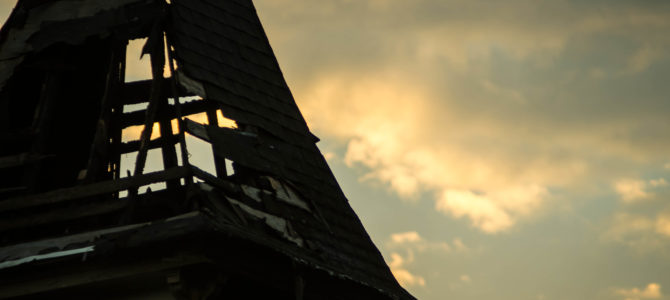Minnesota Democratic Gov. Tim Walz announced plans for a “phased” reopening Wednesday that allows restaurants, bars, salons, and tattoo parlors to reopen, plus a wide array of other businesses. Of the few institutions that must remain closed however, are churches.
According to the governor’s order, places that reopen must operate with mandatory social distancing measures, with restaurants capped at 50 patrons spaced at least six feet apart. Churches, on the other hand, are still prohibited from holding congregations of more than 10. Nearly identical guidelines were issued by North Carolina Democratic Gov. Roy Cooper before a federal judge struck down the executive order as discriminatory.
“The record, at this admittedly early stage of the case, reveals that the Governor appears to trust citizens to perform non-religious activities indoors (such as shopping or walking or selling merchandise) but does not trust them to do the same when they worship together indoors,” Judge James C. Dever wrote.
A similar story is playing out in California, where the state’s Democratic Gov. Gavin Newsom unveiled plans for reopening that notably excludes places of worship while paving the way for secular businesses to restart operations. The governor’s proposal provoked a letter from the Justice Department’s Civil Rights Decision urging Newsom to reconsider.
“We recognize the duty that you have to protect the health and safety of Californians in the face of a pandemic that is unprecedented in our lifetimes,” a group of U.S. attorneys wrote. However, “there is no pandemic exception to the U.S. Constitution and its Bill of Rights.”
In Minnesota, a group of Catholics and Lutherans also pushed back against their state’s discriminatory lockdown, writing to Gov. Walz that they would resume services next week in defiance of Walz’s orders to remain closed.
“In light of the relevant information available, and based on the public activities that your administration is now allowing, we have concluded that many of our parishes are ready to safely resume Mass, albeit in a limited way,” explained Bemard Hebda, the archbishop of Saint Paul and Minneapolis.
State priorities to reopen secular services such as malls and casinos over houses of worship have revealed how far the nation has strayed from seeing faith as an essential need. According to the Pew Research Center in December, the American religious landscape is continuing to transform at a rapid pace with fewer adults as identifying as Christian while the number of religious “nones” are growing.
In 2009, 17 percent of U.S. adults identified as atheist, agnostic, or “nothing in particular.” Today that number stands at 26 percent, or 1 in 4 adults. Research finds that secular public schooling is a major factor in this secularization of successive generations of Americans.
The Pew Research Center’s statistics have visibly confirmed amid the current pandemic where restaurants and bars are seen as more important to reopen than religious institutions that are imperative fulfilling the spiritual needs of an increasingly anxious public. One Kentucky mayor even threatened to arrest those attending drive-in Easter services in mid-April when lockdowns were in full bloom, before being blocked by a federal judge.
While the state and local shut downs lead to record levels of unemployment and increased levels of isolation, a nation already primed with an existing mental health crisis is desperate for the comfort that faith provides. Calls to crisis hotlines are overwhelming call centers and rates of addiction are seeing a new surge as Americans cling to their favorite vices to cope with the financial devastation and hopelessness that the pandemic presents.
Well Being Trust, a national public health non-profit, projects upwards of 75,000 Americans will succumb to the pandemic over a virus they never came in contact with through these deaths of despair. If ever there was a time this generation needs its church, this 21st century pandemic is it.
The effect of faith on an individual’s well-being has been well-established in the scientific literature no matter the God one seeks comfort from.
In a 2013 study in Belmont, Massachusetts for example, a team researchers followed 159 patients at a psychiatric hospital and found that belief in God was associated with better treatment outcomes for symptoms of depression. Not only did the researchers discover a positive relationship, but they found that higher levels or belief correlated with greater reductions in depressive symptoms, whereas those with no belief were twice as likely to not respond to treatment.
Another study published in 2014 by clinical psychologist Lisa Miller at Columbia University found that spirituality and religion can protect individuals from depression by thickening the brain cortex. Just three years earlier, Miller found in 2011 that adults who reported placing a high importance on religion or spirituality were 76 percent less likely to suffer from a major depressive episode, even when they had parents had the illness.









